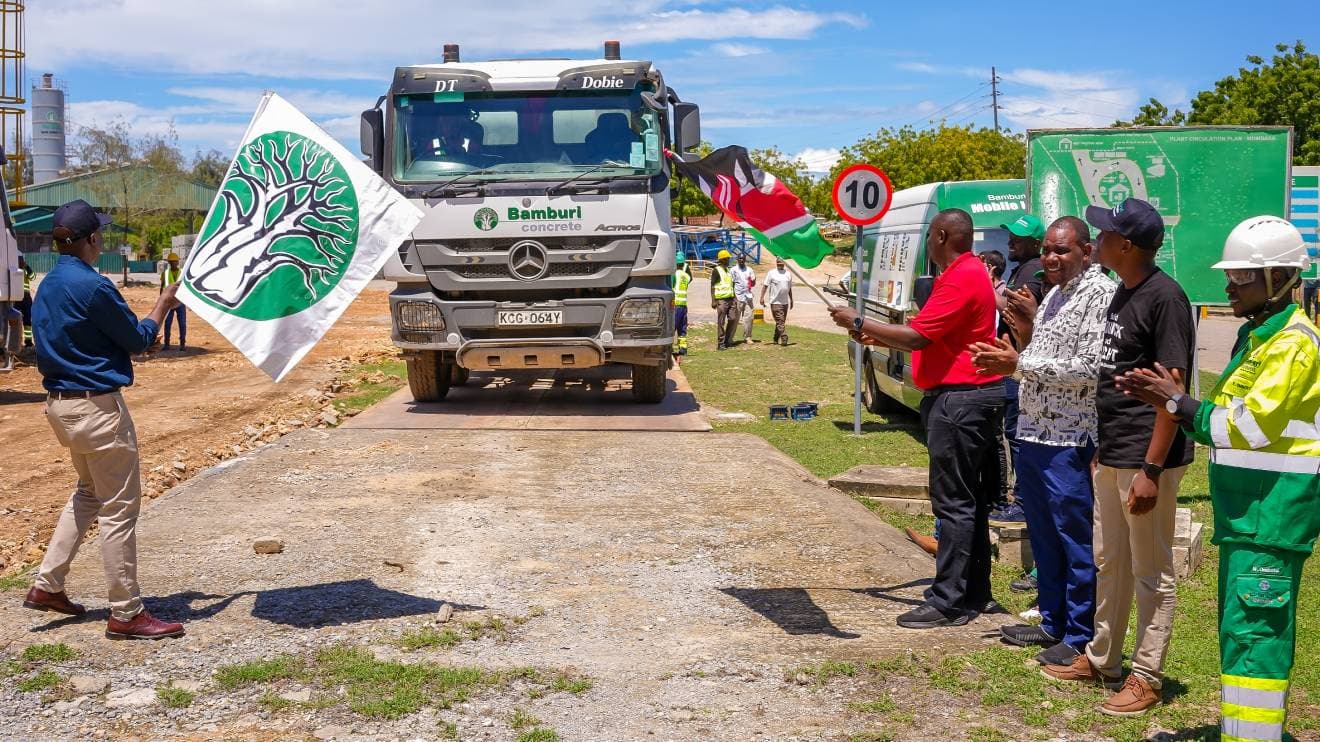We're loading the full news article for you. This includes the article content, images, author information, and related articles.
Bamburi Cement’s new low-carbon product, DURAPLUS, aims to decarbonize Kenya's construction sector, aligning with national development goals amid a growing demand for sustainable building materials.

Bamburi Cement PLC has launched DURAPLUS, a high-strength, eco-friendly cement, marking a significant step in the company's strategy to support Kenya's transition to sustainable construction. This move comes as the nation's building industry increasingly embraces green technologies and materials to mitigate environmental impact and align with global climate targets.
DURAPLUS CEM III/A 42.5 N is engineered to reduce carbon dioxide emissions by over 45% compared to traditional Ordinary Portland Cement (OPC). This reduction is achieved by intergrinding Portland cement clinker with blast furnace slag, a byproduct from the iron manufacturing industry, embodying circular economy principles. The product offers superior performance, including high early and late strength, low heat of hydration to prevent thermal cracking in large concrete structures, and enhanced resistance to chlorides and sulfates, making it suitable for challenging environments like coastal regions and geothermal areas.
The introduction of DURAPLUS is a core component of Bamburi's 2030 sustainability plan, which is built on five pillars: Climate and Energy, Circular Economy, Nature & Biodiversity, People & Human Rights, and Governance. The company aims to achieve net-zero carbon emissions by 2050, a goal driven by its decarbonization roadmap. This strategy includes reducing the clinker-to-cement ratio, increasing the use of alternative fuels, and adopting renewable energy sources.
The launch of DURAPLUS supports Kenya's national development blueprint, Vision 2030, and its commitment to the UN Sustainable Development Goals (SDGs). The construction industry is a critical driver of Kenya's economy, and the shift towards green building practices is gaining momentum, supported by government initiatives and a growing environmental consciousness among investors and consumers. Sustainable construction is seen as a key trend, with developers increasingly adopting eco-friendly materials and energy-efficient designs.
Bamburi's move away from OPC production, which began in January 2024, underscores this industry-wide shift. OPC is a significant source of industrial carbon emissions, with one ton of clinker releasing approximately 0.83 tons of CO2. By offering a portfolio of eco-labeled, low-carbon products like Fundi, Tembo, Nguvu, and Duracem, Bamburi is actively working to decarbonize the sector. For instance, its Duracem product was used in the construction of the Makupa Bridge in Mombasa, saving an estimated 10 million kilograms of CO2 compared to if OPC had been used.
Bamburi Cement's commitment to sustainability is not a new endeavor. For decades, the company has been recognized for its environmental rehabilitation efforts, most notably the transformation of its disused limestone quarries into the renowned Haller Park and Bamburi Forest Trails. These projects serve as a testament to the company's long-standing philosophy of integrating environmental conservation into its business model. Through its subsidiary, Lafarge Eco Systems, the company has rehabilitated over 360 hectares of land.
The company's waste management arm, Geocycle, further contributes to its circular economy goals by co-processing industrial and agricultural waste as alternative fuels in its cement kilns, reducing reliance on fossil fuels. In 2022, this initiative led to a 5.5% increase in alternative fuel use and a 3.2% reduction in carbon emissions.
Despite its sustainability efforts, Bamburi Cement has faced legal challenges regarding its environmental impact. In February 2025, a petition was filed in the High Court of Kenya by residents of Mombasa County and environmental groups, alleging pollution and health hazards from the company's operations. The company has denied the allegations, stating its adherence to environmental regulations. Financially, the company reported a net loss for the year ended December 31, 2024, influenced by the sale of its Ugandan subsidiary and challenging market conditions. However, the company's leadership remains confident in its strategy to deliver strong performance moving forward.
As Kenya's construction sector is projected to grow, the demand for sustainable materials like DURAPLUS is expected to rise. Bamburi Cement's focus on innovation and sustainability positions it as a key player in shaping a greener, more resilient built environment for the nation.
Keep the conversation in one place—threads here stay linked to the story and in the forums.
Other hot threads
E-sports and Gaming Community in Kenya
Active 8 months ago
The Role of Technology in Modern Agriculture (AgriTech)
Active 8 months ago
Popular Recreational Activities Across Counties
Active 8 months ago
Investing in Youth Sports Development Programs
Active 8 months ago